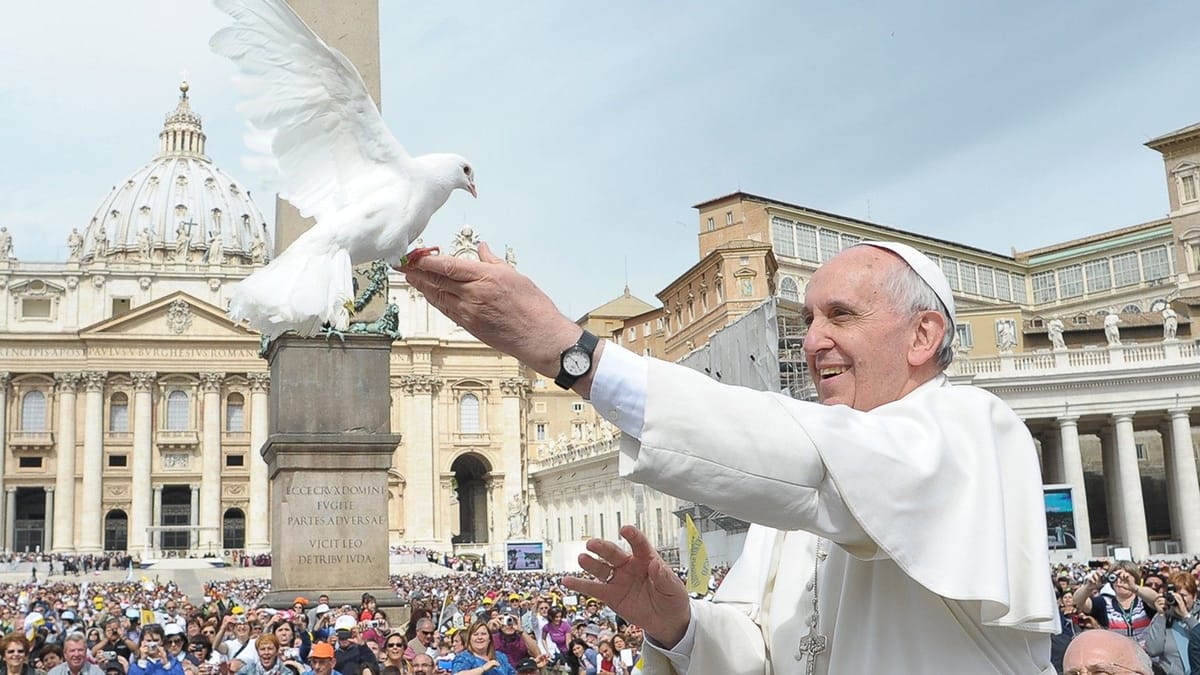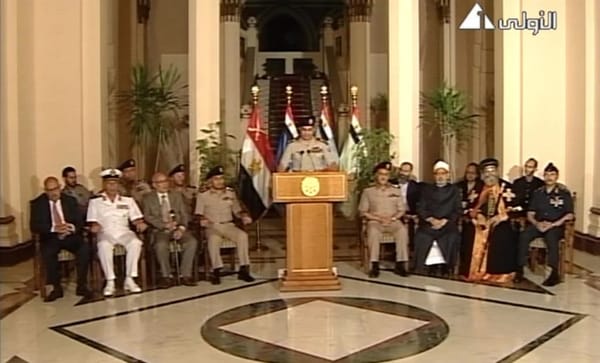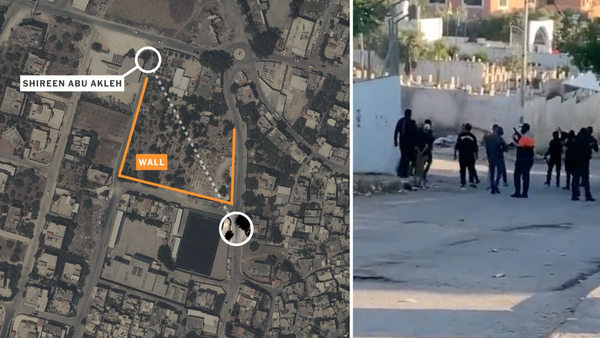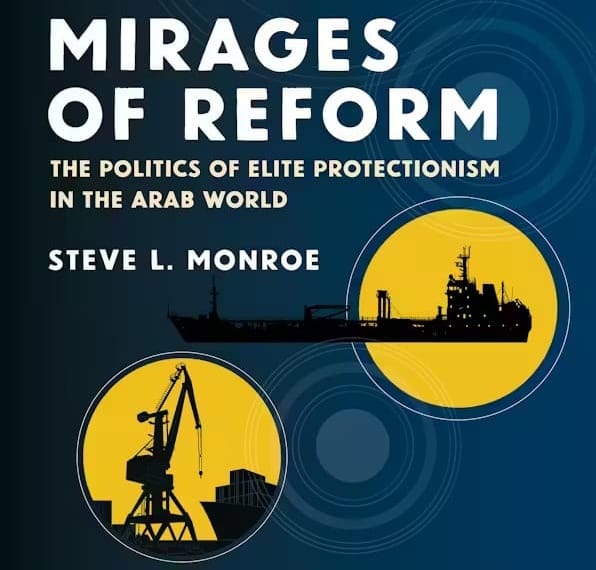Farewell to a Most Humane Pope
And welcome to the resistance, APSA.

“I express my closeness to the sufferings...of all the Israeli people and the Palestinian people…I appeal to the warring parties: call a ceasefire, release the hostages and come to the aid of a starving people that aspires to a future of peace." It is fitting that some of Pope Francis’s last words before his passing early Monday morning were a profoundly moral and humane call for an end to the horrors of Gaza. Throughout his papacy, Pope Francis was a voice for sanity and hope in the Middle East, taking real chances to try and promote peace and tolerance everywhere from Palestine to Iraq. Francis was outspoken in his criticism of Israel’s devastation of Gaza, calling frequently and loudly for a ceasefire and an end to the senseless killing — and for a meaningful and just resolution of the Israeli-Palestinian conflict.
In an earlier era, I wrote quite a lot about interreligious dialogue, including articles about Iranian President Mohammed Khatemi’s “Dialogue of Civilizations” and more broadly the conditions for meaningful dialogue under the post-9/11 conditions of terror and demonization. It was absolutely fascinating to watch the shift in the terms of those debates when Francis succeeded Benedict XVI in the papacy. Benedict was skeptical of dialogue with Islam, taking a hard line on questions of religious truth and the differences between religions. His best known statement, the 2006 Regenburg lecture, provoked considerable hostility among Muslim interlocutors for its seeming assertation of the irrationality and fanaticism of Islam as a religion.
The reception of Francis in the Middle East could not have been more different. Following his historic 2021 meeting with Ayatollah Ali Sistani in Najaf, Francis declared: “Peace does not demand winners or losers, but brothers and sisters who, despite misunderstandings and past wounds, choose the path of dialogue.” Francis exemplified not only the call for dialogue among religions but the ethos in practice. “All religions are paths to god,” he asserted. His humility, grace, and courage shone through on pathbreaking visits to Israel, Jordan and Palestine in 2014 (I still remember how excited my Jordanian friends, Christian and Muslim alike, were by his visit at the time). In 2021 he visited Iraq and met with leaders across the religious spectrum - most famously with Ayatollah Ali Sistani - sending the most powerful message possible about interfaith coexistence and the common human struggle for tolerance and grace (see Ann Wainscott’s fascinating account of his popularity in Iraq even before that visit). During a visit to the UAE in 2019, where he met the Grand Imam of Al-Azhar and signed the Document on Human Fraternity, Francis declared:
“In an epoch such as our own, in which there is a strong temptation to see an ongoing conflict between the Christian and Islamic civilizations, and also to consider religions as a source of conflict, we wished to give an ulterior, clear and decisive sign, that it is indeed possible to come together; it is possible to respect one another and to dialogue; and that, even in the diversity of cultures and traditions, the Christian and Islamic worlds appreciate and uphold common values: life, family, religious sense, honour for the elderly, the education of young people, and still others.”
Those are words to live by. The Moroccan scholar Abdessamad Belhaj, in a recent article, argued that Francis’s “dedication to global ethical concerns, such as human brotherhood, the environment, migration, and peace, has made religious leaders throughout the Middle East, particularly in Iraq, Egypt, and the Gulf states, favourable to interfaith co-operation with the Catholic Church for the common good… initiating an ethical encounter to overcome injustice and violence, in addition to re-establishing religious diplomacy and communication with Islam.”
Francis was a tireless advocate for peace and justice in Palestine, and called for an investigation of whether Israel’s war on Gaza constituted a genocide. The world has produced few leaders of his humanity and grace, certainly of late. It is revealing beyond words where his death is mourned (most of the world) and where it is rather disgustingly celebrated. He will be missed profoundly.
Around the MENA Academy: The Academic Resistance Takes Shape
The relentless assault on higher education by the Trump administration based in part on the conflation of criticism of Israel with antisemitism continues to accelerate. Amidst the deportations, freezing of grants, and recasting of Title VI civil rights protections as almost exclusively focused on preventing criticism of Israel, it’s been good to see the beginnings of the coordinated pushback for which so many of us have called. Nearly 200 college and university presidents (though not, as of yet, my own George Washington University) have signed on to a letter released today by the American Association of Colleges and Universities asserting what should not be controversial:
American institutions of higher learning have in common the essential freedom to determine, on academic grounds, whom to admit and what is taught, how, and by whom. Our colleges and universities share a commitment to serve as centers of open inquiry where, in their pursuit of truth, faculty, students, and staff are free to exchange ideas and opinions across a full range of viewpoints without fear of retribution, censorship, or deportation.
The Middle East Studies Association continues to take the lead in standing up for academic freedom. On April 11, the Board and our Task Force issued a strong joint statement: “The MESA Board of Directors and the MESA Task Force on Civil and Human Rights condemn in the strongest terms the Trump administration’s targeting of noncitizen students and researchers for their constitutionally protected speech and advocacy.” Where some other such statements focus on broader, abstract questions of academic freedom, MESA insists — correctly — on naming the leading wedge of attach and centering the pressure related to Palestine and false allegations of antisemitism:
“The MESA Board of Directors and Task Force on Civil and Human Rights demand first and foremost that the U.S. government desist from actions designed to repress pro-Palestine speech and expressive conduct and to punish those who have engaged in such constitutionally-protected speech and conduct, especially noncitizens who are being threatened with the pretextual and punitive use of immigration laws for expressing views with which the government disagrees. At a time when the government is abusing immigration laws in this way, and also possibly threatening to expand repression of speech to citizens through criminal laws, universities and colleges owe heightened protections to members of their campus communities, particularly noncitizens.”
For its part, Harvard’s lawsuit against over the freezing of grants won fairly through rigorous peer review pointedly notes that the government “cannot identify any rational connection between antisemitism concerns and the medical, science, technological and other research it has frozen”. The antisemitism concerns are also bullshit, of course — which makes it doubly upsetting that before finding a spine, Harvard dismantled its Center for Middle East Studies and adopted the IHRA definition of antisemitism which underpins the conflation of criticism of Israel with antisemitism. Still, better late than never. Perhaps those earlier capitulations can be quietly rolled back now that Cambridge has joined the fight.
Last month I publicly called out the American Political Science Association for saying nothing about these unprecedented attacks on the academy. I’m quite sure that a great number of APSA members were communicating such complaints privately. I’m pleased to note that APSA has released two statements this month, one on the rights of international students and the other a stand on academic freedom, which I reproduce here:
The American Political Science Association (APSA) is deeply concerned by recent attacks on the independence of colleges and universities in the United States. Over the past few weeks, there have been instances of hundreds of millions of dollars of federal grants and contracts for colleges and universities being cancelled or suspended, paired with promises of reinstating funding in return for compliance with a list of demands for institutional overhaul. Some of the funding being withheld had already been appropriated and distributed to the institutions. Furthermore, the Department of Education has circulated a list of institutions of higher education that will be under investigation, and therefore, likely candidates for possible future funding cancellations. While the Administration’s reasoning for the withdrawals of funding and investigations varies by institution, they are primarily in retaliation for university handling of campus protests about Gaza, policies regarding transgender athletes, and support for diversity, equity, and inclusion programs.
The withholding of federal funds and the threat of withholding funds, without relevant and proper investigation into alleged violations or protections of due process, is a dangerous strategy used to discipline institutions of higher education for perceived political noncompliance. These tactics and decisions jeopardize the independence of colleges and universities and undermine the basic principles of academic freedom. These actions implicitly threaten the ability of scholars to freely engage in scientific research and may stifle the advancements of science in our society.
It is imperative that institutions of higher education retain their independence and academic freedom in order to serve as effective leaders in innovation, producers of evidence-based knowledge, and drivers of workforce development. Attempts to destabilize the pursuit of scientific inquiry will cause serious harm to the scholarly leadership and competitive edge of the U.S. for years to come. APSA calls on the current administration to cease these needless attacks on institutions of higher education and to reaffirm federal support for research, education, and innovation.
These are the sorts of joint pushback and affirmative advocacy for the value of higher education which we need to see. When institutions are willing to stand up and clearly explain what is happening and the stakes, the public can see that the demands being made on colleges and universities are utterly unaccepable. They can appreciate that the threatened freezing of grants or stripping of 501c3 status on political grounds is unfair and illegal, and threatens the foundations of American science. They can see the utter inhumanity and brutality of the arrest and deportation of international students. Hopefully, they can even take the last step to publicly rejecting the cynical appropriation of allegations of antisemitism to justify crackdowns and repression.
Abu Aardvark's MENA Academy is a reader-supported publication. To receive new posts and support my work, consider becoming a free or paid subscriber.



